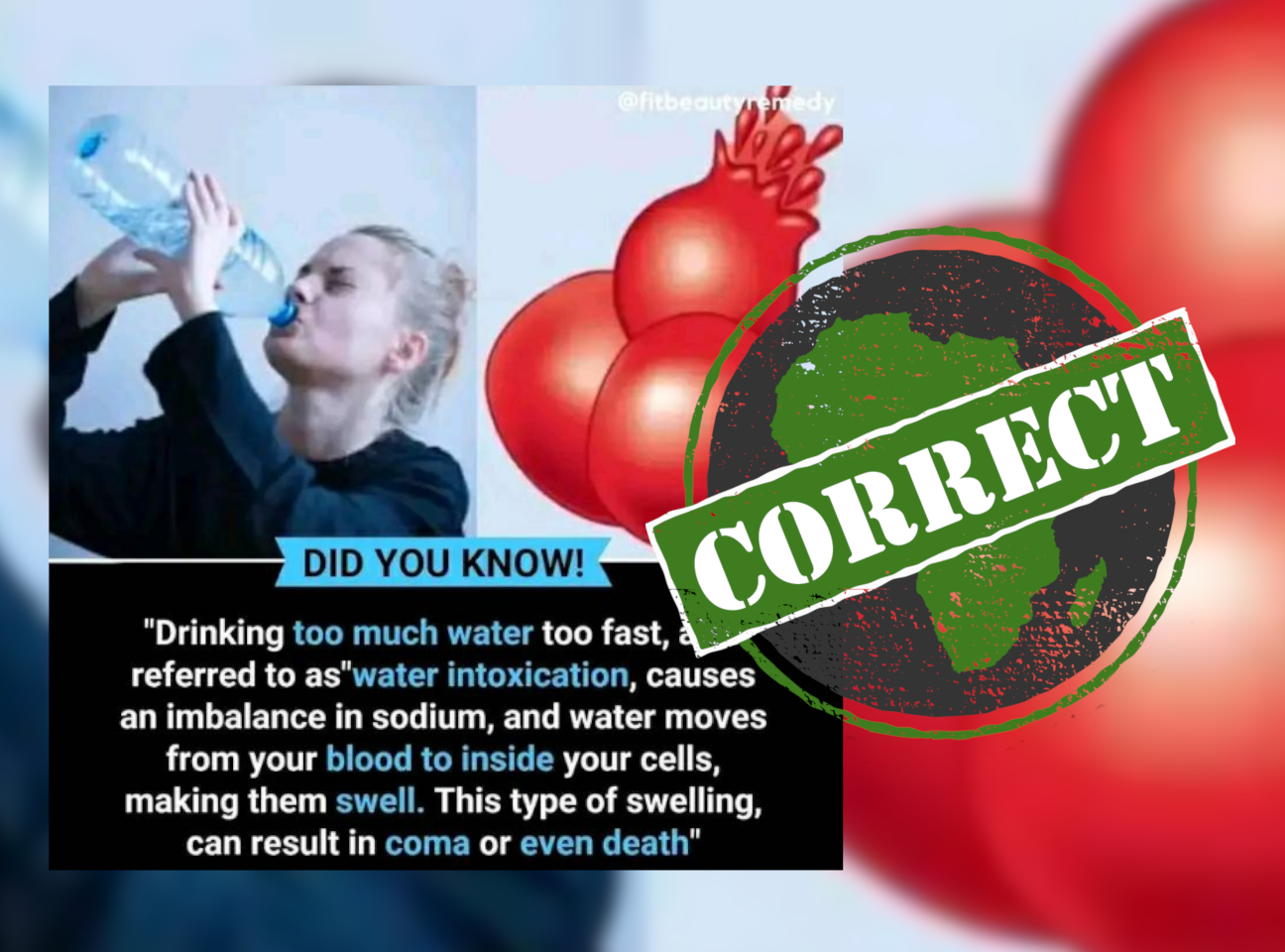IN SHORT: A viral post on Facebook suggests that you can do yourself serious damage by drinking too much water. And the warning is accurate – water intoxication can lead to seizures and coma, and even be fatal.
A Facebook post with just under 69,000 views in just 24 hours warns about the dangers of “water intoxication”, or “drinking too much water too fast”.
It claims that this “causes an imbalance in sodium, and water moves from your blood to inside your cells, making them swell” and that “this type of swelling, can result in coma or even death”.
Dehydration happens when the body is losing more fluid than it is taking in, but can you drink too much water? The post was flagged as potentially false by Meta’s fact-checking system. So we investigated.

Water intoxication can cause hyponatremia, which could lead to coma and death
Drinking too much water is called water intoxication and does affect the brain, according to Medical News Today. It is dangerous as it increases the amount of water in the blood, diluting electrolytes such as sodium, and this can cause swelling in the cells.
These electrolytes help the body to function normally by maintaining the volume of fluid and blood, says the US Centers for Disease Control and Prevention.
Water intoxication causes hyponatremia, a condition caused by lower than normal sodium levels in the blood. This condition, if severe and left untreated, can lead to seizures, coma and death.
Water intoxication is more common than you might think. A 2002 study found that excessive water-drinking could be caused by increased water intake during exercise.
Although not common, pets can also overhydrate.
Gundersen Health System, a US-based non-profit, lists some of the symptoms of water intoxication as:
- Cloudy thinking
- Nausea and vomiting
- Headaches
In severe cases, some symptoms can present as:
- Mental confusion
- Seizures
- Coma
No one-size-fits-all answer
Unfortunately, there’s no one-size-fits-all answer to the question of how much water we should be drinking a day to keep hydrated but not overhydrate.
Generally four to six cups a day is recommended for healthy people. But those with certain health conditions like kidney disease might need to drink less.
The UK's National Health Service suggests that, on average, a person should drink six to eight glasses of fluids a day. This includes beverages other than water, like coffee, tea or carbonated drinks. But don’t just glug down as much water as you can – this could be dangerous.
Republish our content for free
For publishers: what to do if your post is rated false
A fact-checker has rated your Facebook or Instagram post as “false”, “altered”, “partly false” or “missing context”. This could have serious consequences. What do you do?
Click on our guide for the steps you should follow.
Publishers guideAfrica Check teams up with Facebook
Africa Check is a partner in Meta's third-party fact-checking programme to help stop the spread of false information on social media.
The content we rate as “false” will be downgraded on Facebook and Instagram. This means fewer people will see it.
You can also help identify false information on Facebook. This guide explains how.


Add new comment